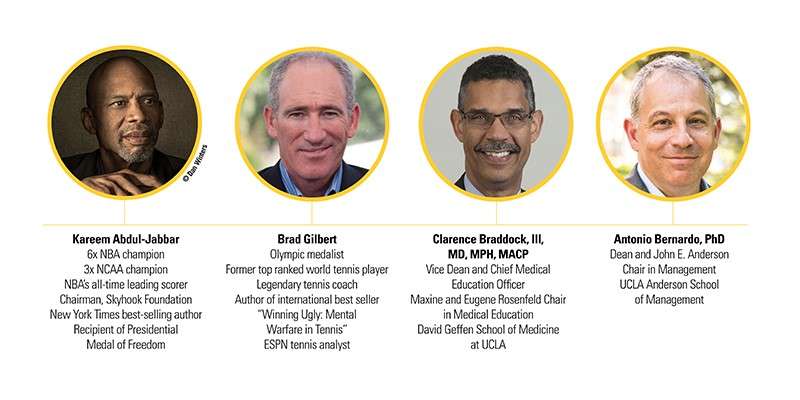Leaders of Tomorrow

The UCLA Leaders of Tomorrow is a leadership series by Eric Esrailian, MD, MPH, chief of the Vatche & Tamar Manoukian Division of Digestive Diseases. The series will emphasize essential leadership skills through the experiences of some of the most influential and successful leaders in our community.
Dr. Esrailian brings together friends and colleagues from his diverse personal and professional life to highlight specific themes for each session. Our goal is to give our scholars, trainees and other UCLA stakeholders a seat at the table with these leaders — enabling them to learn from the examples presented by the best in their respective fields and to leave these sessions inspired to become leaders in their own lives and careers.
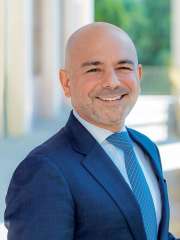
Eric Esrailian, MD, MPH
Throughout a uniquely dynamic career, he has established himself as a successful leader in many fields and has committed himself to helping others. He is a physician and administrator at UCLA, Emmy-nominated social impact film producer and entrepreneur, and actively involved in philanthropic efforts connecting health, human rights, education and the arts around the world. In 2017, UCLA designated him as a UCLA Optimist - a notable alumni and faculty dedicated to solving the world’s problems.
Entrepreneurship
Held: November 1, 2022
Special guest: Dr. Arie Belldegrun
Using lessons from healthcare, science, business and their personal lives, Dr. Esrailian engaged Dr. Arie Belldegrun in a meaningful conversation on how he has built on his success as a physician and scientist to excel in the business world. Some degree of entrepreneurship is relevant in nearly every aspect of our lives, and these leaders discussed their own experiences and their leadership journeys.
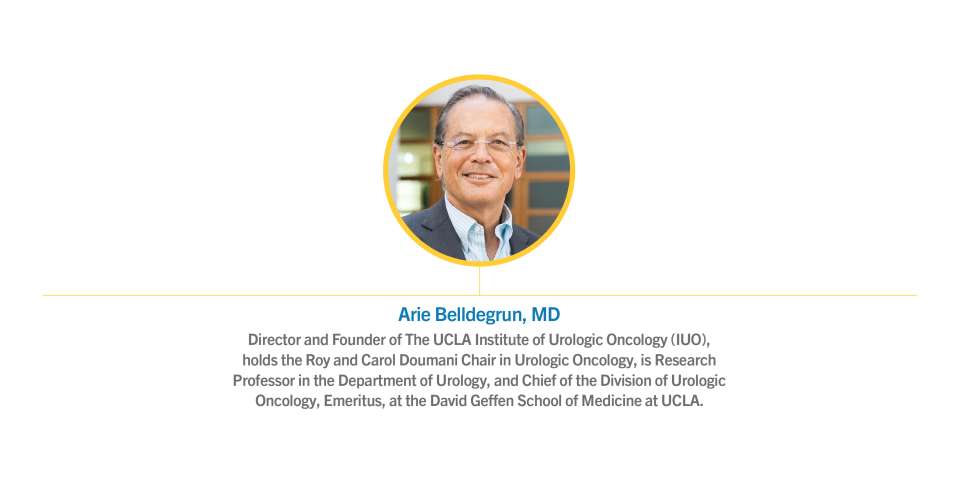
Building Winning Teams
Held: December 3, 2021
Special guests: Coach Cori Close, Coach Mike Cronin
Using lessons from team sports, coaching, business, and healthcare, Dr. Esrailian engaged this group in a meaningful conversation on how to build winning teams and achieve success in different fields. Team dynamics are relevant in nearly every aspect of our lives, and these three leaders will discuss their own experiences and their leadership journeys.
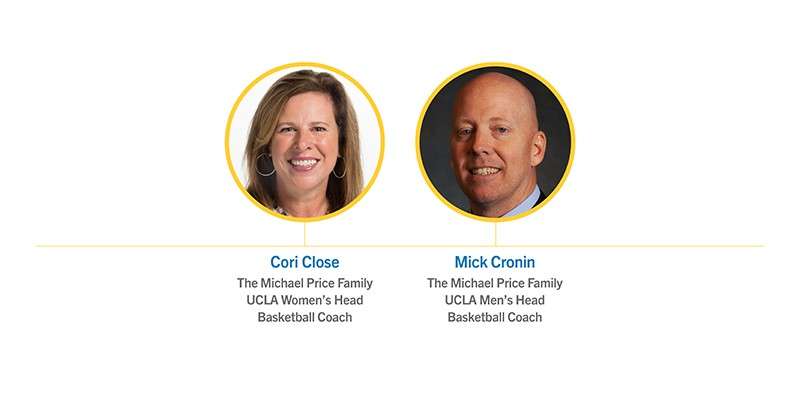
Doing the Right Thing
Held: March 11, 2021
Special guests: Amal Clooney, Dean Jennifer Mnookin
Using lessons from human rights law, politics, management, healthcare, and business, Dr. Esrailian led this group in a meaningful conversation on how successful leaders have to make difficult decisions. Read more
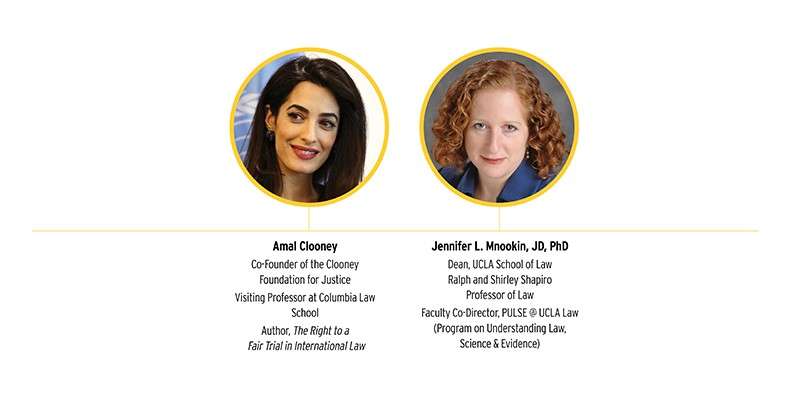
Why Grit Matters
Held: October 14, 2020
Special guests: Kareem Abdul-Jabbar, Brad Gilbert, Dr. Clarence H. Braddock, III, Dr. Antonio Bernardo
Using lessons from team and individual sports, coaching, management, and medicine, Dr. Esrailian led this group in a meaningful conversation on how grit has played a role in their own successes. Kareem Abdul-Jabbar also discussed his focus on STEM education with the Skyhook Foundation and lessons from legendary UCLA basketball coach John Wooden.
